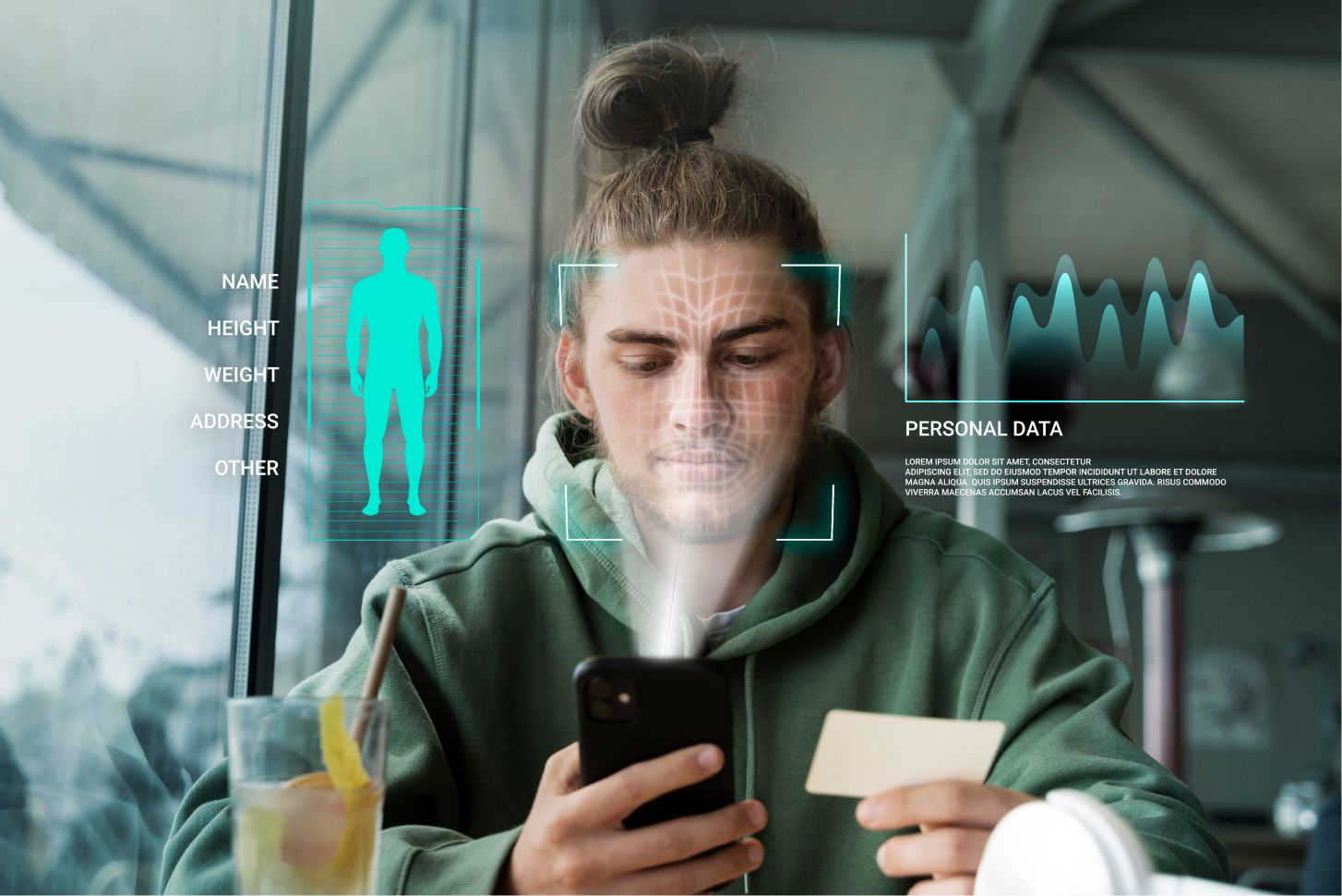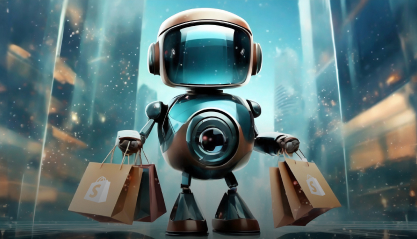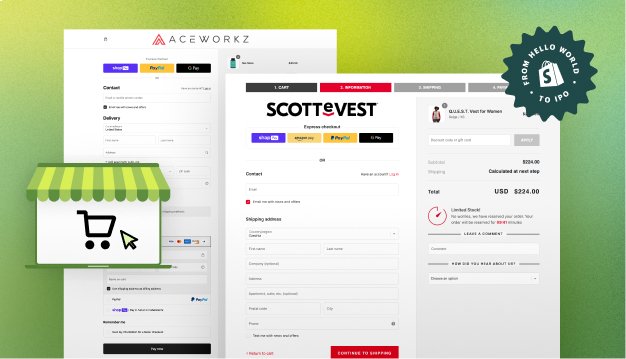
Artificial Intelligence in E-commerce: Smart Strategies and business transformation
The retail world is undergoing a revolution, and artificial intelligence is one of the main drivers. These technologies are changing aspects of retailing: personalizing marketing, customer support, and demand forecasting. A year ago it seemed just a theory, but today AI is becoming an active tool in online sales. AI is capable of taking over various aspects of a shop, aimed at improving communication with visitors, technical and search engine optimization, and increasing conversion rates.
In this piece, let’s look at the changes the smart engineering era is bringing to retail; using AI in ecommerce samples. We will talk about the prospects of these technologies and their practical implementation including AI in b2b e-commerce possibilities.
How Smart technology will help retail
What solutions and functionality does artificial intelligence offer for web-based shopping:
- predicts future conversions by analyzing visitor actions in the app;
- predicts the best audience to target with targeted advertising;
- helps to make purchases, find the right goods;
- personalizes in-app advice established on a user’s past actions;
- improves offline selling points collects information from sensors and video cameras to track how visitors move through the site: where they stay longer and what racks they leave unattended;
- detects problems in the app, production, and warehouse before they occur and sends alerts about anomalies, suspicious transactions, and potential fraud.
The machine intelligence evolution is improving predictive analytics and forecasting. AI is becoming an integral part of this field.
The place of AI solutions in digital retailing
This industry is probably one of the most powerful drivers of the practical implementation of intelligent systems in business. Rooted on current market research, the global market for AI solutions for online sales was estimated at $4-6 billion. In the coming years, it will grow at an average annual growth rate of 14-16%, so by 2032, it will increase at least fourfold, reaching $18-22 billion.
What is behind this explosive AI innovation? Neural networks and generative AI permit retailers to effectively address the next challenges:
- marketing individualization;
- improving service, and customer experience;
- supply chain optimization;
- demand forecasting;
- dynamic pricing;
- deep operations automation;
- cybersecurity and data protection.
Unlike many other industries where mass cognitive computing adoption is still associated with high risks, and faces ethical concerns (finance, medicine, education), retail may maximize the AI benefits right now. Entrepreneurs are seeing super successful AI examples being applied in internet shopping by industry giants (eBay, Alibaba, Walmart, Amazon) and are looking for replication of their success on some scale. So the role of AI in digital sales is going to increase as the rapid science development in this field will be superimposed on the huge demand.
AI for customer support
In addition to revolutionizing sales, AI technology is paving the way to automate client support processes. AI chatbot for ecommerce allows a retailer to create a true virtual call center that will accept inquiries 24/7 while maintaining responsiveness and efficiency.
Quality guidance will still require human operators, but AI will permit businesses to significantly reduce call center costs, improve responsiveness, minimize language barrier issues, and optimize overall service quality.
A typical example of a full-fledged intelligent systems consumer assistance bot is Isha, a voice assistant who helps Sony Corporation provide service in India, navigating the country’s multilingual and multicultural environment. There are additional cases every year. Large companies are incorporating modern innovations into their work while achieving high efficiency and significant progress.
The AI chatbot
The AI chatbot benefits for support include:
- 24/7 availability;
- the ability to instantly respond to common questions and requests;
- easy scalability to fit any company’s needs, and traffic volumes;
- reduced assistance, and service costs;
- automation allows any expert to focus on the most complex queries.
Augmented Reality
Augmented reality (AR) is an emerging innovation that is being applied in various fields. Stores are implementing AR solutions that assist buyers to virtually try on clothing, car buyers are employing the technology to see how the chosen car will look with a particular color. AR compensates for the shortcomings of net shopping by allowing consumers to “try on” an item before buying it. Google notes that 66% of people are interested in AR technology for internet shopping.
If goods are presented this way, the chance that they will be bought is doubled compared with conventional online purchasing, research shows. Marketers learned that 40% of shoppers are willing to pay extra for merchandise if they pre-test it utilizing AR.
Working with the warehouse and product balances
Your employees will no longer have to do manual warehouse stocktaking. The AI can complete the task on their behalf. You need to enter the info into a unique large database. Special sensors will then independently read costs and deliveries into the storage facility, entering them into the system.
AI also can:
- determine the optimal location in the storage to reduce investigation time when shipping;
- visually inspect goods for defects, and damage via computer vision;
- control autonomous robots to perform tasks like moving and packing assets.
Smart recommendations
Machine intelligence helps to enhance personalizing, user experience. It is used to suggest items to buyers based on age, location, and previous actions. These suggestions may be presented on a website or in targeted social media ads, such suggestions do not require a lot of data to run.
AI was introduced into recommendations to understand what goods a buyer does not need and not to bother the audience with advertising. However, with the algorithm enhancement, it turned out that this tool is so well-versed in human needs that it is possible to recommend items that the client will buy. The section with recommended products on the page significantly influences the buyer’s decision by offering alternatives. Recommendation technologies help to find items they might not have found any other way.
Hyper personalization
Personalized recommendation mechanisms are nothing new to the E-business world, they have long been actively exploited by Google and Facebook. However, neural network growth makes those instruments much more accurate and effective.
Thanks to cognitive computing evolution, retailers are capable of building unique profiles for each person, not limiting themselves to segmenting the audience into narrow categories. This approach has been dubbed “hyper-personalization.” Within its framework, each buyer receives individual suggestions and information that best matches the visitor’s behavior, needs, and preferences. The profile can be based on a comprehensive picture of their demographics, location, search history, and purchases. This way, the retailer is maximized to ensure consumer satisfaction and loyalty retention.
Similar mechanisms are already exploited by global giants: Amazon, and Alibaba. The iconic brand Starbucks has thus implemented in its application a mechanism for selecting unique offers rooted in activity details, purchase history, and personal desires.
The following personalization advantages are highlighted:
- increased conversion rates, as users are recommended products they are interested in;
- increased average check and profitability, as individualization helps improve cross-selling, and up-selling;
- increased loyalty: users like to be offered a personalized experience;
- improved analytics: AI algorithms assist stores gain deeper insights into user behavior.
Content generation
One of the most obvious AI for e-commerce uses is text, visual, audio, or video materials creation. The following capabilities can be applied in different ways: marketing materials creation, descriptions, lending, catalog pages, etc. Generative AI like ChatGPT may be used for blogging and social networking. Many brands are already running social media pages through generative AI today.
The generative AI in ecommerce options don’t stop there. It can be used for design, and offers visualization. For example, jewelry brand J’evar uses AI to design jewelry. As the company claims it saves the designers much time.
AI in ecommerce examples
Practice shows it is almost impossible to predict the future, it can only be imagined. Current trends in the AI expansion and the market allow us to make a few assumptions. So, how will cognitive computing and E-business develop in the future? We envision a picture of their full integration to build an individualized, convenient, and safe buying process for every consumer. AI will enable multiple innovations.
- Creating virtual avatars. Those profiles will fully represent customers’ looks, styles, choices, and personal characteristics. They will try on clothes, shoes, and accessories in the Metaverse and receive advice from neural network assistants who will select the best options.
- Gesture and voice control. The use of voice and gesture commands to control the interface of the web store will finally replace the usual logic of searching for products in the catalog. Buyers will be able to show what they want to buy, so AI will recognize their intentions and provide the necessary results without filters and sorting.
- Immersive methods. The massive combination of AI instruments with AR and VR will enable realistic simulations of products and services. Consumers will be able to not just see but even feel how the supplies they are interested in will work. For example, they will drive any virtual car before ordering it.
- Predictive order delivery. Analyzing consumer’s habits, preferences, and requests will finally allow a retailer to predict their purchase before they even complete an order. Special logistics hubs will be created for “foreseen” orders, which will speed up delivery times.
- Analyzing emotions and moods. Analyzing the mental parameters and state of a person using AI tools for e-commerce is an unexplored but extremely promising area for research. We assume AI tools will read a user’s emotions and change the tone, style, and content of communication with them accordingly. You can only imagine the impact this will have on increasing profitability.
- Data and financial security. AI is likely to be entrusted with almost all security functions. It will encrypt and protect transactions, prevent fraud, and ensure compliance in terms of personal information protection.
- AI e-commerce website builder. Another useful tool that can reduce the cost of creating a website and significantly speed up the process.
The mentioned are the most relevant cases of AI implementation in E-business and there could appear additional cases. After all, artificial intelligence is going through a rapid development period, and the market for AI solutions for e-commerce is growing rapidly. It is quite possible that very soon you will see more complex neural network use cases: in terms of customer relationship management, logistics, order processing optimization, etc.
Conclusion
The AI application in electronic commerce makes the work of store owners and marketers much easier. With the Internet shop and ChatGPT interaction system, businesses will get higher in search engine optimization without having to hire specialists or learn the process on their own. Through the artificial intelligence application, you are capable of putting routine tasks similar to creating meta tags into automatic mode. This allows them to focus on more important tasks such as company progress and increasing loyalty.
The sales industry has changed significantly in the last two years. Using advanced artificial intelligence and machine learning methods, retailers are automating marketing, implementing intelligent order fulfillment and predictive analytics, optimizing operations, and increasing revenue. Machine intelligence has made it easier for dealers to manage and grow their enterprises. It also benefits customers in the form of more convenient and personalized purchasing experiences.







